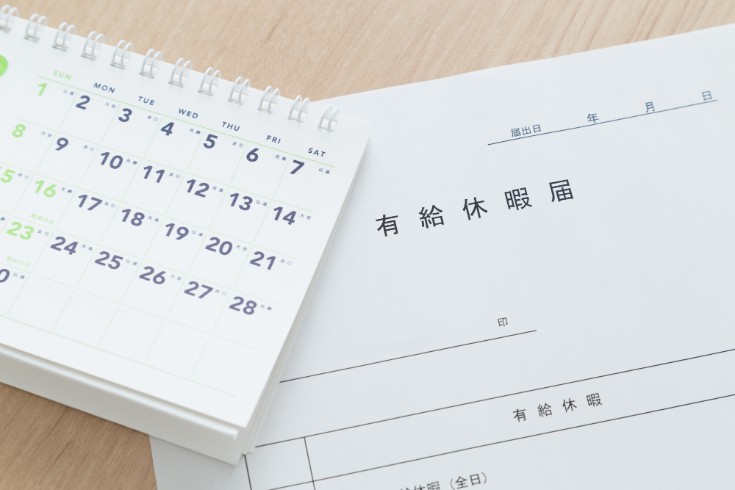Explanation of Articles of Incorporation Amendments under Japanese Corporate Law: Their Necessity, Procedures, and Shareholder Protection

The Articles of Incorporation are a critical document that establishes the fundamental rules of a company, and any changes to them can significantly impact the company’s business activities and organizational structure. As a company grows and the business environment evolves, appropriately reviewing and updating the Articles of Incorporation is essential for the company’s sustained development. For instance, the need to amend the Articles may arise in various situations, such as the initiation of new business ventures, shifts in management strategy, or in response to legislative reforms. Such amendments are not merely seen as administrative procedures but are recognized as a crucial part of the decision-making process that can shape the future of the company. Understanding this process accurately and proceeding appropriately is extremely important to avoid legal risks and maintain smooth corporate operations. Amendments to the Articles of Incorporation legally underpin strategic corporate moves such as business expansion, reorganization, or changes in capital policy, and the rigor of these procedures ensures the transparency of the company and the protection of stakeholders’ interests. This article provides a detailed explanation of the necessity, specific procedures, related legal disciplines, and the protection of shareholders’ rights concerning amendments to the Articles of Incorporation under Japanese Corporate Law.
When a Change in the Articles of Incorporation Is Necessary
The articles of incorporation of a company are created at the time of its establishment. However, as the company grows and the business environment changes, modifications to the contents of the articles may become necessary. Under Japanese Corporate Law, the items listed in the articles of incorporation are categorized into three types: “mandatory items,” “optional items,” and “arbitrary items.” A change in any of these items necessitates an amendment to the articles of incorporation. Such changes are not merely administrative procedures; they are deeply connected to the company’s business operations and legal status, and are closely tied to multiple legal provisions. This demonstrates that Japanese Corporate Law is a highly integrated legal system, where a single change can potentially have a cascading effect on other regulations and procedures.
Changing the Purpose of a Business Under Japanese Corporate Law
When a company ventures into a new business field or wishes to expand or reduce its existing business activities, it is necessary to amend the business purpose stated in the articles of incorporation. Article 27 of the Japanese Companies Act stipulates that a company’s purpose must be an absolute entry in the articles of incorporation. As a rule, a company cannot engage in business activities not listed in its articles. Therefore, to broaden the scope of business activities, the first step is to change the purpose in the articles, and then proceed to initiate the related business activities. This change requires a special resolution at the shareholders’ meeting.
Changing a Company Name in Japan
Changing a company’s name (trade name) in Japan also requires an amendment to the articles of incorporation. Under the Japanese Companies Act (Article 27), the trade name is considered an absolute mandatory item to be included in the articles. The trade name is a critical element representing the identity of a company, and its alteration directly affects the company’s external recognition. After the resolution to change the trade name, it is necessary to register the change at the Legal Affairs Bureau that has jurisdiction over the location of the company’s head office.
Changing the Location of a Company’s Head Office in Japan
When relocating a company’s head office in Japan, a change to the articles of incorporation may be necessary. If the articles specify the exact address down to the street number, a change is required. However, if only the minimum administrative division (for example, city or ward) is listed, a change to the articles may not be necessary for relocations within the same division. Regardless of whether a change to the articles is needed, registration at the Legal Affairs Bureau is always required when moving the head office, as it is a matter of public record.
Changes to the Total Number of Authorized Shares and Types of Shares
Amendments to the articles of incorporation are required when increasing or decreasing the total number of authorized shares, issuing new types of shares other than common stock (such as shares with restricted voting rights or transfer-restricted shares), or altering the terms of existing types of shares. Provisions concerning types of shares are set forth in Articles 107, 108, and 111 of the Japanese Companies Act. These changes directly affect shareholder rights, and therefore, in addition to a special resolution at the general shareholders’ meeting, a resolution at a class shareholders’ meeting, consisting of the shareholders affected by the changes, may also be required.
Changes in Organizational Structure (Establishment or Abolition of Boards of Directors and Statutory Auditors)
When revising a company’s management system, there may be a need to establish new bodies such as boards of directors and statutory auditors, or to abolish existing ones. For instance, a company might abolish its board of directors to increase managerial flexibility, or establish an audit & supervisory board in preparation for going public. These organizational changes are governed by Article 326 of the Japanese Companies Act, and typically require a special resolution at the shareholders’ meeting to amend the articles of incorporation.
Reduction of Capital Stock in Japan
When reducing the amount of capital stock, a change in the articles of incorporation is required. This can be done to cover deficits, refund shareholders, or as part of an M&A strategy. The reduction of capital stock can affect the company’s creditworthiness and the interests of creditors, which is why the creditor protection procedures described later are mandated.
Other Significant Amendments
In addition to the aforementioned items, changes to significant matters stipulated in the articles of incorporation, such as the method of public notice, changes in the number of shares per unit, and alterations in the number or term of directors, will require an amendment to the articles of incorporation. These changes are also essential elements of company management, and proper procedures are required.
Overview of Procedures for Amending Articles of Incorporation Under Japanese Corporate Law
Amending the Articles of Incorporation is a critical act that changes the fundamental rules of a company and requires strict procedures under Japanese Corporate Law. This process has two aspects: internal decision-making and external disclosure, each with different legal requirements at various stages.
Convening a Shareholders’ Meeting and Resolution
To amend the Articles of Incorporation of a stock company, a resolution by the shareholders’ meeting is generally required [Article 466 of the Japanese Companies Act]. As this resolution pertains to matters fundamental to the company, it must meet the stringent requirements of a “special resolution” . When convening a shareholders’ meeting, it is mandatory to adhere to the convocation period stipulated by the Japanese Companies Act and the company’s Articles of Incorporation (generally up to two weeks before the meeting date) and to dispatch the notice of convocation .
Preparation and Storage of Minutes
When a resolution to amend the Articles of Incorporation is made at a shareholders’ meeting, it is obligatory to create detailed minutes of the meeting . The minutes must clearly state the matters resolved, the name of the proposer, the total number of voting rights of the attending shareholders, and the number of affirmative votes, among other details . These minutes serve as evidence of the resolution and must be appropriately stored by the company .
The Necessity of Registration Application
If the content of the Articles of Incorporation amendment pertains to registered items of the company (such as trade name, purpose, location of the head office, total number of shares that can be issued, organizational design, etc.), an application for registration of change is required at the Legal Affairs Bureau . Registration is an essential procedure to assert the fact of the change against third parties. A resolution at the shareholders’ meeting alone does not allow you to claim the change against third parties . This is because Japanese Corporate Law distinguishes between the effectiveness of internal decision-making and external publicity. While a resolution at the shareholders’ meeting finalizes the internal decision-making, the fact of the change must be made public to assert legal effect against third parties, such as external business partners and creditors. Therefore, the application for registration must generally be made within two weeks from the date of the resolution .
Special Resolutions at Shareholders’ Meetings in Japan
Decisions on important matters for a company, including amendments to the articles of incorporation, generally require a special resolution at the shareholders’ meeting. The strictness of this resolution requirement serves to protect the interests of shareholders and ensure that significant changes to the company are made with the support of a broad base of shareholders.
Requirements for Special Resolutions Under Japanese Corporate Law (Article 309, Paragraph 2, Item 11)
Article 466 of the Japanese Corporate Law stipulates that a resolution of the shareholders’ meeting is required to amend the articles of incorporation. Furthermore, Article 309, Paragraph 2, Item 11 of the Japanese Corporate Law specifies that amending the articles of incorporation is one of the matters that require a ‘special resolution’ at the shareholders’ meeting. For a special resolution to be adopted, shareholders with a majority of the voting rights eligible to be exercised must be present, and at least two-thirds of the voting rights of the attending shareholders must approve. While the articles of incorporation may increase these requirements, they generally cannot be reduced. This high threshold for approval serves to prevent fundamental changes to the company from being made too easily, thereby protecting shareholders, especially minority shareholders, from potential disadvantages.
Comparison with Ordinary Resolutions
In shareholder meetings, in addition to special resolutions, there are “ordinary resolutions.” Ordinary resolutions are used for more general matters (such as the appointment and dismissal of officers, approval of financial statements, etc.) and are adopted with the affirmative vote of a majority of the voting rights of the shareholders present, who hold more than half of the voting rights able to be exercised. On the other hand, special resolutions are required for significant matters that affect the core of the company (such as capital reduction, business transfer, merger, dissolution, etc.), and more stringent requirements are imposed. These stringent requirements aim to protect the interests of shareholders, especially minority shareholders. The fact that the requirements for shareholder meeting resolutions in Japan are set in stages according to the importance of the matter reflects the design philosophy of the Japanese Companies Act, which seeks broader consensus for decisions that have a greater impact on shareholders’ investments.
| Type of Resolution | Ordinary Resolution | Special Resolution |
| Quorum (Percentage of Voting Rights of Present Shareholders Against Total Voting Rights) | Majority (Can be changed or excluded by the articles of incorporation) | Majority (Can be reduced to one-third by the articles of incorporation) |
| Number of Affirmative Votes (Percentage of Voting Rights of Present Shareholders) | Majority (Cannot be changed by the articles of incorporation) | Two-thirds or more (Can be increased by the articles of incorporation) |
| Examples of Decisions | Appointment and dismissal of officers, approval of financial documents, officer remuneration | Amendment of articles of incorporation, capital reduction, business transfer, merger, dissolution |
Effective Date of Resolutions
Resolutions at a shareholders’ meeting in Japan generally take effect at the time they are made. However, it is also possible to set the effective date of amendments to the articles of incorporation for a specific future date. This is known as a “resolution with a time limit,” and its validity has been recognized by the Supreme Court of Japan.
The Supreme Court’s decision on March 8, 1962 (Volume 16, Issue 3, Page 473 of the Civil Collection) states that “as long as it does not contravene any provision, purpose, or rationale of the law, it is generally permitted,” providing a legal basis for setting the effective date of amendments to the articles of incorporation to a future date. This precedent allows companies the flexibility to adjust the effective date of amendments to their articles of incorporation in line with specific business plans or reorganization schedules. For example, in the case of major reorganizations such as mergers or business transfers, various preparations and coordination with external parties are necessary, making it essential in practice to set a certain period between the resolution at the shareholders’ meeting and the actual effective date. This precedent legally guarantees the flexibility to meet such business necessities, supporting the smooth progression of business activities. However, it is difficult to define a clear period universally, as the specific duration can vary depending on individual circumstances.
Registration Procedures for Articles of Incorporation Amendments in Japan
When amendments to the articles of incorporation affect a company’s registered items, it is mandatory to undergo change registration procedures at the Legal Affairs Bureau in Japan. This process is essential to publicly demonstrate that the company’s information is accurate and up-to-date, and compliance is crucial in fulfilling the company’s legal responsibilities.
Deadline for Registration Application and Penalties
If changes to the registered items occur due to amendments to the articles of incorporation, the company must, in principle, apply for change registration at the competent Legal Affairs Bureau within two weeks from the date of the change (usually the date of the shareholders’ meeting resolution) [Article 915, Paragraph 1 of the Japanese Companies Act]. Failure to meet this deadline may result in a penalty of up to one million yen for the company’s representative. This is known as “registration negligence” and is a sanction for neglecting the company’s obligation to disclose information. The existence of this strict deadline and penalties underscores the Japanese Companies Act’s emphasis on the transparency of a company’s basic information. This transparency serves as the foundation for third parties, such as business partners and creditors, to trust and engage in transactions based on accurate company information. Therefore, registration is not merely an administrative procedure but an important mechanism that ensures the reliability and stability of commercial transactions.
Required Documents
Various documents are required for the change registration application, depending on the nature of the changes. Generally, the necessary documents include the registration application form, minutes of the shareholders’ meeting, and a shareholders’ list. In the case of officer changes, documents such as consent to appointment and certificate of seal registration are required, and for changes in capital stock, payment confirmation certificates and documents related to creditor protection procedures may be needed. While the original minutes must be submitted, it is also possible to use the “return of original documents” procedure to retain them for company records.
Online Application and Paper Application
There are two main methods for applying for change registration: submitting documents in person at the Legal Affairs Bureau and using the Ministry of Justice’s “Registration and Deposit Online Application System” to apply online. Online applications can be made from home and are efficient, but they require prior preparation, such as obtaining an electronic certificate and installing dedicated software.
Procedure for Return of Original Documents
Among the documents submitted at the time of registration application, there are originals (such as the minutes of the shareholders’ meeting) that need to be retained by the company. These documents can be returned after the registration is complete by using the “return of original documents” procedure. To receive the return of originals, it is necessary to create copies of the submitted originals and submit these copies with a statement confirming that they are identical to the originals. This procedure can reduce the time and cost of reacquiring documents when the same originals are needed for multiple procedures.
Creditor Protection Procedures in the Event of a Capital Reduction Under Japanese Corporate Law
A reduction in the amount of capital can diminish the financial foundation of a company, potentially harming the interests of creditors. Therefore, Japanese Corporate Law mandates creditor protection procedures [Article 449 of the Japanese Companies Act]. These procedures serve as a vital safety valve to maintain trust from creditors in the company’s business activities and to ensure that their rights are not unjustly infringed upon. Considering the impact of capital reduction on creditors, the law balances the freedom of corporate activities with creditor protection by guaranteeing the opportunity for objections.
Procedures Based on Article 449 of the Japanese Companies Act
A company must publish a notice in the Official Gazette detailing the content of the capital reduction, the location where the latest balance sheet or its summary is posted, and informing creditors that they have a certain period (at least one month) to raise objections . Additionally, the company must send individual notices to known creditors. Companies that use methods other than the Official Gazette for public announcements (such as daily newspapers or electronic notices) can omit individual notices to each creditor by conducting a “double notice” . The effect of the capital reduction does not occur unless the creditor protection procedures are completed . This means that the legal recognition of changes in the company’s financial status due to the capital reduction is not permitted until the opportunity for creditor objections has been sufficiently secured and any necessary responses, such as settlements, have been completed.
| Procedure Step | Period/Deadline | Notes |
| Board of Directors’ resolution (decision on capital reduction, calling of the general meeting of shareholders) | About 2.5 months before the effective date | Applying for the Official Gazette notice at the same time is efficient |
| Application for notice in the Official Gazette | About 2 months before the effective date | Arrange early as it takes time to be published |
| Sending of notice of the general meeting of shareholders | Up to 2 weeks before the meeting date | Comply with the convocation period |
| Sending of individual notices to known creditors | About 2 months before the effective date | Can be omitted if conducting a double notice |
| Publication of the notice of capital reduction (Official Gazette & other methods) | About 1 month before the effective date | Simultaneous publication in the Official Gazette and as prescribed in the articles of incorporation |
| Resolution of the general meeting of shareholders (approval of capital reduction) | About 1 month before the effective date | A special resolution is required |
| Expiration of the creditor protection procedure period | The day before the effective date (at least one month after publication) | Ensure there are no objections from creditors |
| Effective date of the capital reduction | The determined effective date | Completion of creditor protection procedures is a prerequisite |
| Registration application | Within 2 weeks of the effective date | Apply to the competent Legal Affairs Bureau [Article 915, Paragraph 1 of the Japanese Companies Act] |
Shareholder’s Right to Demand Purchase of Shares in Opposition
Under Japanese corporate law, shareholders who oppose certain amendments to the articles of incorporation or reorganization actions have the right to demand that the company purchase their shares at a fair price. This is a crucial system designed to protect the opportunity for shareholders to recover their invested capital. When a company makes decisions that have a significant impact on shareholders, this legal guarantee provides an “exit” for shareholders who do not agree with those decisions, thereby protecting shareholder rights and ensuring fairness in the corporate decision-making process.
Circumstances Triggering Share Repurchase Rights (Article 116 of the Japanese Companies Act)
Article 116 of the Japanese Companies Act specifically outlines the circumstances under which dissenting shareholders can exercise their share repurchase rights. The main instances include the following:
- When the company amends its articles of incorporation to impose restrictions on the transfer of all issued shares [Article 116, Paragraph 1, Item 1 of the Japanese Companies Act]. This is because such a change could prevent shareholders from freely selling their shares, potentially depriving them of the opportunity to recover their invested capital.
- When the company amends its articles of incorporation to establish provisions for class shares with an all-acquisition clause [Article 116, Paragraph 1, Item 2 of the Japanese Companies Act]. This allows the company to compulsorily acquire all shares of that class by resolution of the shareholders’ meeting, which has a significant effect of forcibly altering the shareholders’ property rights.
- In cases where there is a risk of harm to the holders of a certain class of shares due to actions such as share consolidation, share splits, bonus share issues, changes to the articles of incorporation regarding the number of shares per unit, issuance of shares through shareholder allotment, or issuance and bonus allotment of share options, and where the articles of incorporation stipulate that such actions do not require a resolution of the class shareholders’ meeting [Article 116, Paragraph 1, Item 3 of the Japanese Companies Act].
“Dissenting shareholders” refers to those who submit a notice of opposition prior to the shareholders’ meeting that requires a resolution for these actions and who either oppose at the meeting or are shareholders unable to exercise their voting rights [Article 116, Paragraph 2 of the Japanese Companies Act].
Procedures for Exercising Share Repurchase Rights Under Japanese Corporate Law
When a company performs an act that triggers the right to demand share repurchase, it must notify its shareholders of this fact at least 20 days before the effective date. This notification can be substituted with a public notice as stipulated in Article 116, Paragraphs 3 and 4 of the Japanese Companies Act. Shareholders must make their share repurchase request to the company between 20 days prior to the effective date and the day before the effective date, in accordance with Article 116, Paragraph 5 of the Japanese Companies Act. The request must specify the number of shares subject to the repurchase demand, and if share certificates have been issued, submission of the certificates is also required as per Article 116, Paragraph 6 of the Japanese Companies Act. A share repurchase demand cannot be withdrawn without the company’s consent, as stated in Article 116, Paragraph 7 of the Japanese Companies Act.
Determining the Fair Value of Shares Under Japanese Corporate Law
When a shareholder makes a share repurchase request, negotiations take place between the shareholder and the company to determine the “fair value” of the shares. If the parties cannot reach an agreement, the shareholder may petition the court to decide on the price .
The Osaka High Court’s decision on March 28, 1989 (1989) (published in Hanrei Jiho, No. 1324, page 140) provided a significant judgment regarding the valuation of shares held by minority shareholders in a closely-held company with share transfer restrictions when exercising their share repurchase rights. This decision established that the Gordon Growth Model, which emphasizes future dividend income, is an appropriate method for calculating share value, based on the notion that the primary financial benefit a general minority shareholder receives from a company is through profit distribution . However, it also took into account the possibility that dividend policies could be influenced by majority shareholders and that dividends might fall below the company’s liquidation value, acknowledging that the liquidation value has significance as a minimum threshold for share prices . This case law highlighted that, unlike methods used for tax purposes such as the industry average approach, a fair valuation in private disputes must consider the position of minority shareholders .
Precedents Regarding Amendments to Articles of Incorporation Under Japanese Corporate Law
There is a wealth of judicial precedents concerning the procedures and effects of amending the Articles of Incorporation, which significantly influence practical interpretations. These precedents supplement the parts of the Companies Act that are not clear and provide guidelines for the resolution of specific disputes.
Shareholders’ Meeting Resolution Cancellation Lawsuits in Japan
Shareholders can file a lawsuit to cancel a resolution, including those concerning amendments to the Articles of Incorporation, if there are defects in the procedure or content of the resolution [Japanese Companies Act, Article 831, Paragraph 1]. The Supreme Court of Japan, in its decision on December 24, 1976 (Selected Case 37), ruled that, in principle, new grounds for cancellation cannot be added after the expiration of the three-month filing period from the date of the resolution. This judgment demands strict adherence to the filing period to clarify the effects of a flawed resolution promptly and ensure the stability of the company’s operations. If new grounds for cancellation were allowed indefinitely after the filing period, it could leave the company’s critical decisions in a state of perpetual instability, potentially disrupting business activities. This decision reflects the judiciary’s stance on balancing the protection of shareholders’ rights with the stability of corporate management. It clarifies that even if there are procedural defects in the resolution to amend the Articles of Incorporation, strict adherence to the filing period is required, and new grounds for cancellation cannot be added after the period has passed. However, subsequent case law has shown a more flexible approach, allowing additional grounds for cancellation within the scope of the reasons already claimed before the expiration of the filing period (Tokyo District Court, September 6, 2010, “Internet Number Case”).
Other Related Precedents
The Supreme Court of Japan, in its decision on March 8, 1962 (Volume 16, Issue 3, Page 473 of the Civil Collection), ruled that “time-limited resolutions” setting the effective date of amendments to the Articles of Incorporation in the future are generally permitted, provided they do not contravene the provisions, purpose, or principles of the law. This provides a legal basis for companies to adjust the effective date of amendments to their Articles of Incorporation in line with specific business plans or reorganization schedules, recognizing the flexibility needed for corporate operations.
Regarding the determination of a fair price for shares in the context of a demand for share repurchase rights, the Osaka High Court, in its decision on March 28, 1989 (Case Report No. 1324, Page 140), indicated that the Gordon Growth Model, which emphasizes future dividend profits, is an appropriate method for valuing shares of non-listed companies held by minority shareholders. This reflects the view that the economic benefits minority shareholders derive from the company are primarily through dividends, and it aims to protect their interests accordingly.
Conclusion
Amending the Articles of Incorporation is a critical management decision essential for the growth and development of a company, and it is governed by strict procedures under Japanese Corporate Law. Changes such as adding business purposes, altering trade names, reducing capital stock, and revising organizational design require special resolutions at the shareholders’ meeting and, when necessary, applications for registration of changes with the Legal Affairs Bureau. Particularly, in the case of reducing capital stock, creditor protection procedures are required, and for certain amendments to the Articles, the right of dissenting shareholders to demand the purchase of their shares may arise, among other complex legal regulations. These procedures are indispensable for ensuring the legal stability and transparency of a company and for protecting the interests of stakeholders such as shareholders and creditors.
The process of amending the Articles involves a multitude of legal requirements, strict deadlines, and the complex interpretation of case law, necessitating specialized knowledge and experience. A single change can have a cascading effect on other provisions and procedures, and comprehensively understanding and appropriately addressing this is not straightforward. To smoothly navigate such complex legal affairs, the support of experts is extremely important.
Monolith Law Office possesses extensive knowledge and practical experience in amendments to the Articles of Incorporation under Japanese Corporate Law. We have provided accurate advice and practical solutions to the complex legal challenges faced by our clients in a wide range of cases involving amendments to the Articles. Our firm includes several English-speaking attorneys with foreign legal qualifications, enabling us to provide a deep understanding of and confidence in the Japanese legal system through smooth communication, even for clients whose native language is not Japanese. If you require consultation regarding amendments to the Articles or any legal support that accompanies it, please do not hesitate to contact Monolith Law Office. We are committed to strongly supporting the development of your business.
Category: General Corporate





















